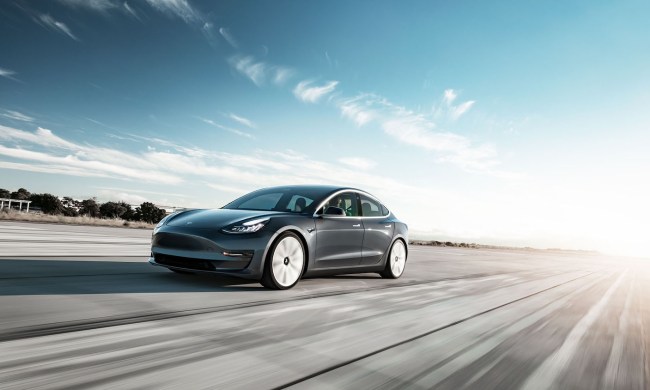Honda and General Motors are setting aside their differences to engineer electric vehicles together. Their announcement adds a bullet point to the growing list of alliances formed to offset the sky-high costs of developing battery technology.
The Japanese company will build two electric models on the Ultium platform its American partner introduced in March 2020. There’s no word yet on what they’ll look like, or what segment of the market they’ll compete in. Anything is possible because the architecture — the chassis, the battery pack, and the motor — is being designed to be as modular as can be. It’s not too far-fetched to assume at least one of the two EVs will be an SUV — the segment is hugely popular right now, and it’s going to get incredibly crowded in the early 2020s.
Regardless of what they look like, and what corner of the industry they compete in, Honda’s upcoming electric models will share more than a powertrain with their General Motors-built counterparts. The firm pledged to integrate GM’s OnStar into its HondaLink suite of connectivity features, and it will offer hands-free semiautonomous technology developed by General Motors. There’s no word on what Detroit gets out of the deal. Honda has a turn-key electric platform in its portfolio that it’s building cars on for the European market, but General Motors left that continent and is not planning to come back. Economies of scale may be enough to justify the partnership.
The partnership won’t spawn badge-engineered models like the Toyota 86 and the Subaru BRZ. Honda clarified it will style the interior and the exterior of its future electric models in-house to ensure they don’t end up looking like a Chevrolet, and it will tune the platform with its own driving characteristics in mind. Teaming up with General Motors doesn’t necessarily mean the two companies are now best buds, so EVs built on the same bones will compete against each other.
General Motors will manufacture Honda’s two electric models in North America, though it hasn’t said where yet. Sales will begin during the 2024 model year, meaning they’ll likely be unveiled in 2023 at the latest.
Looking ahead, the two firms are open to expanding their collaboration.
“We are in discussions with one another regarding the possibility of further extending our partnership,” affirmed Rick Schostek, the executive vice president of Honda’s American division, in a statement. Honda and General Motors are already co-developing hydrogen fuel cells and driverless vehicles like the Cruise Origin.



